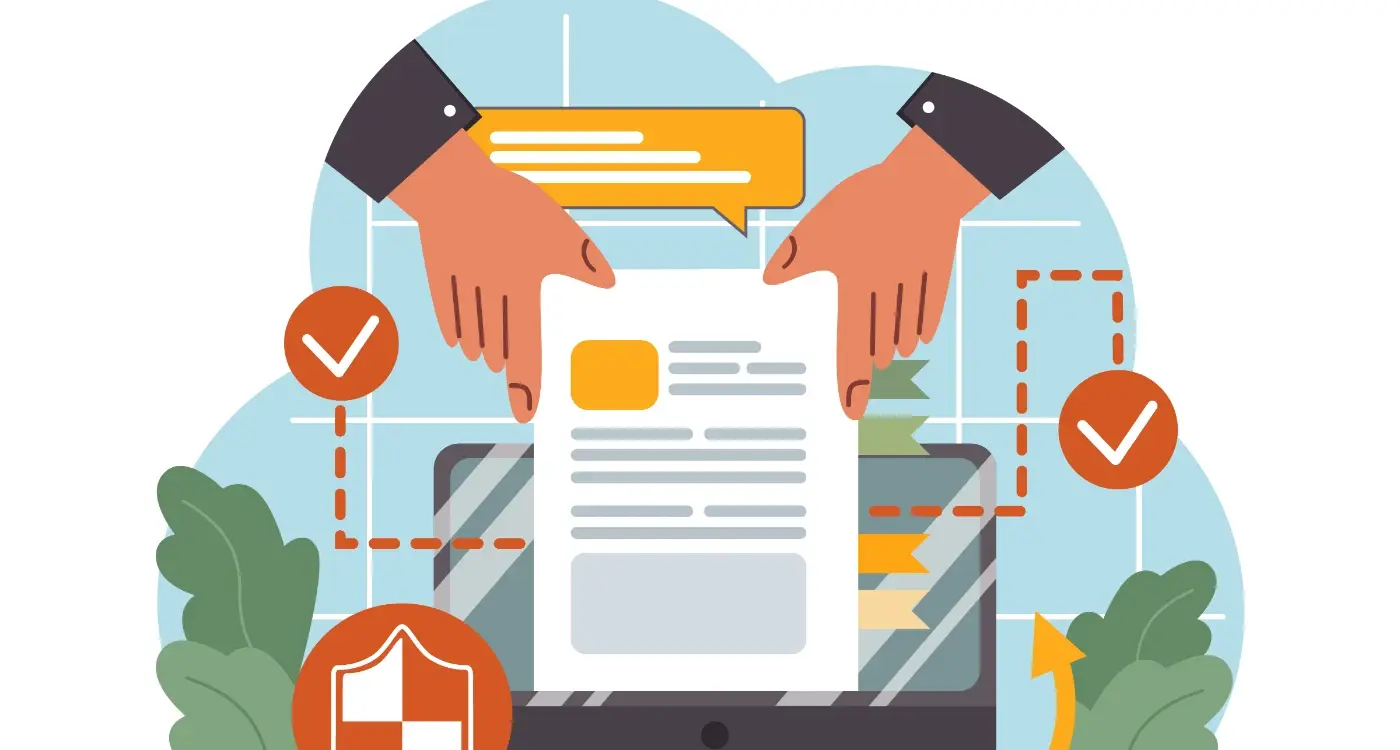What Makes an App Developer Agreement Actually Protect You?
Getting into business with an app developer without a proper agreement is like handing over the keys to your car and hoping they'll bring it back in one piece. I've seen too many brilliant app ideas turn into legal nightmares because someone skipped the boring paperwork bit—and honestly, it breaks my heart every time.
The thing is, most people think a developer agreement is just about money and timelines. Wrong! Sure, those bits matter, but the real meat of these contracts lies in who owns what when everything's finished. I mean, you wouldn't believe how many clients have come to me after discovering their previous developer could technically claim ownership of their entire app. It's mental, really.
Here's what most people don't realise: a developer agreement isn't just a contract—it's your insurance policy, your intellectual property shield, and your business relationship roadmap all rolled into one document. When done right, it protects your idea from the moment you first share it through to launch day and beyond. When done wrong? Well, let's just say I've seen million-pound ideas disappear because someone thought a handshake was enough.
The most expensive app development project is the one that ends up in court because nobody bothered to define who owns what from the start
Over the years, I've learned that the clients who succeed aren't necessarily the ones with the best ideas—they're the ones who understand that legal safeguards and IP protection are just as important as good code. And that starts with knowing what to look for in a developer agreement.
Why Most Developer Agreements Fail to Protect You
I've seen it happen dozens of times—a business owner gets excited about their app idea, finds a developer, signs what looks like a proper contract, and then months later discovers they don't actually own what they've paid for. It's honestly one of the most frustrating situations in our industry, and it happens way more often than it should.
The problem isn't that people are trying to cut corners or save money. Most of the time, they genuinely think they're protected because they have a signed agreement. But here's the thing—having a contract and having the right contract are two completely different things.
The Three Most Common Contract Failures
After working with clients who've been burned by bad agreements, I've noticed the same issues keep coming up. The developer uses a template they downloaded online, focuses only on timelines and payments, or worse—they don't clearly transfer ownership of the intellectual property to you.
- Vague scope definitions that leave room for endless "additional work" charges
- Missing intellectual property clauses that keep ownership with the developer
- No confidentiality protections for your business idea or user data
- Weak or non-existent liability provisions when things go wrong
- Unclear maintenance and support expectations after launch
I've had clients come to me after spending tens of thousands with other developers, only to find out they need permission to make changes to their own app. One client couldn't even access their app's source code because the previous contract didn't specify who owned it.
The worst part? These issues are completely avoidable with the right contract terms when hiring app developers. You just need to know what to look for and what questions to ask before you sign anything. Because once you've signed a bad agreement, fixing it becomes much more expensive—and sometimes impossible.
Who Really Owns Your App's Intellectual Property
Right, let's talk about something that trips up loads of business owners—IP ownership in your developer agreement. I've seen too many clients assume they automatically own everything just because they're paying for it. That's not how it works, and it can be a proper nightmare if you get it wrong.
By default, whoever creates the code owns the copyright. So unless your developer agreement specifically transfers ownership to you, your developer could technically own your app's source code. Mental, isn't it? This is why the "work for hire" clause is so important—it ensures that everything created during the project belongs to you from day one.
What You Actually Own vs What You Think You Own
Here's where it gets a bit complicated. Your app isn't just one big piece of IP—it's made up of different components that might have different ownership rules:
- Your original idea and business concept (yours)
- Custom code written specifically for your app (should be yours with proper contract)
- Third-party libraries and frameworks (belong to their creators)
- Design assets created for your project (should be yours)
- Pre-existing developer tools and code templates (developer's)
The tricky bit is making sure your contract clearly defines what transfers to you and what doesn't. I've seen agreements that were so vague about IP ownership that both parties thought they owned the same code. That's a legal mess waiting to happen.
Always include a comprehensive IP assignment clause that specifically states all custom work becomes your property upon payment. Don't rely on vague language—spell out exactly what you're getting ownership of.
Protecting Your IP During Development
Your developer will need access to your business logic, user data structures, and proprietary algorithms during development. Make sure your agreement includes confidentiality clauses that prevent them from using your ideas elsewhere. Also, consider adding a clause that prevents the developer from creating competing apps using knowledge gained from your project.
Right, let's talk about the contract terms that actually protect you—not the legal jargon that sounds impressive but does nothing when things go wrong. I've seen too many clients get burned because they focused on the wrong parts of their agreements.
Intellectual Property Ownership (The Big One)
This is where most people mess up. Your contract needs to explicitly state that you own all source code, designs, and related IP upon final payment. Don't accept vague language like "client receives usage rights"—that's not ownership, that's just permission to use something the developer still controls.
I always tell clients to look for phrases like "work for hire" or "assignment of all rights, title, and interest." If your developer pushes back on this, that's a red flag. Why would they want to keep ownership of something you're paying them to build?
Project Scope and Change Management
Your agreement should define exactly what you're getting and how changes get handled. Vague statements like "modern mobile app with standard features" are useless—what does that even mean? You want specific deliverables: user registration, payment processing, push notifications, whatever your app actually needs.
Change requests will happen (trust me, they always do), so your contract should outline how these get priced and approved. Without this, you'll end up in endless disputes about what was "included" versus what costs extra.
And here's something people forget—make sure your contract includes provisions for getting your source code and project files if things go sideways. You don't want to be held hostage by a developer who disappears or decides they don't want to work with you anymore.
Protecting Your Idea During Initial Discussions
Here's the thing—most people think they need to spill all the beans about their app idea in that first meeting with a developer. Wrong move. I've seen too many brilliant concepts get "inspired by" because someone shared everything upfront without proper IP protection in place. You know what? There's a smarter way to handle those early conversations.
Before you even mention your app's core functionality, get a non-disclosure agreement signed. Not after the meeting, not "we'll sort that later"—before. Any legitimate developer will understand this and actually respect you more for being professional about it. If they push back or seem annoyed? That's a red flag right there.
What to Share (and What Not to Share)
During initial discussions, focus on the problem your app solves rather than the exact solution. Talk about market size, user pain points, and business model basics. Save the secret sauce—your unique features, technical approach, or proprietary algorithms—until you've got solid legal safeguards in place.
The biggest mistake I see is entrepreneurs who hand over detailed wireframes and feature lists in the first meeting, then wonder why a similar app appears six months later
Building Trust Gradually
Good developer relationships are built on trust, but trust doesn't mean being naive about contract terms and IP protection. Start with high-level concepts, gauge their professionalism and approach, then gradually share more detail as your legal safeguards get stronger. A proper developer agreement should include confidentiality clauses that cover not just your initial discussions, but any ongoing work relationship. Remember, protecting your app idea from theft isn't just about paranoia—it's about maintaining the competitive advantage that makes your app worth building in the first place.
When and How to Share Your App Concept Safely
Right, so you've got your legal protections sorted and you're ready to share your app idea with potential developers. But here's the thing—timing and method matter just as much as having the right paperwork in place. I've seen brilliant concepts get leaked or worse, stolen, because someone shared too much too early without proper safeguards.
The golden rule? Never, and I mean never, share your full concept in that first conversation. Start with the problem your app solves, not how it solves it. If a developer can't engage with the business challenge you're addressing, they're probably not right for your project anyway. Think of it like dating—you don't share your entire life story on the first coffee!
The Three-Stage Sharing Process
I always recommend a staged approach to sharing your concept. Stage one is the problem statement and basic market overview. Stage two involves signing your NDA and sharing core functionality. Stage three—after you've selected your developer—covers the detailed specifications and unique features.
Most developers understand this approach because frankly, we're used to it. When working with boutique development teams, you'll find they're particularly respectful of this process since their reputation depends on client trust. Any developer who pushes back against signing an NDA before seeing your full concept? That's a red flag worth paying attention to.
Documentation That Protects You
Keep detailed records of every conversation and interaction. Email timestamps, meeting notes, even phone call summaries. It sounds paranoid, but these records become your lifeline if things go wrong later. I've seen cases where proper documentation made the difference between winning and losing a legal dispute.
- Always use traceable communication methods (email, not just phone calls)
- Request written confirmations of verbal agreements
- Document who was present in every meeting
- Save all versions of shared documents with timestamps
Remember, sharing your concept safely isn't just about legal protection—its about building trust with the right development partner while keeping your competitive advantage intact.
Red Flags in Developer Contracts to Avoid
I've seen some proper horror stories over the years when it comes to developer agreements. Clients who thought they were protected, only to find out they'd signed away their intellectual property or worse—been left with no legal recourse when things went wrong. The truth is, spotting red flags early can save you thousands of pounds and months of legal headaches down the line.
Some warning signs are obvious, but others are sneaky. They're buried in legal jargon that sounds reasonable until you realise what you've actually agreed to. I mean, who really reads every single clause? But you should, because that's where the nasty surprises live.
Contract Terms That Should Make You Run
Here's what to watch out for—and honestly, if you see any of these, it's time to find a different developer or renegotiate completely:
- Vague IP ownership clauses that don't clearly state you own everything
- No specific deliverables or timelines mentioned anywhere
- Payment terms that require full payment upfront before any work starts
- Clauses that let them use your app idea for other clients
- No termination clause or penalties that make it impossible to leave
- Unlimited liability on your end with zero accountability on theirs
- Rights to modify the agreement without your consent
The biggest red flag? When a developer rushes you to sign without giving you time to review properly. Any legitimate development agency will encourage you to have a lawyer look things over. If they're pushing for a signature today, that's not urgency—that's desperation or something dodgier.
If the contract doesn't explicitly state that you own all intellectual property created during the project, don't sign it. This includes code, designs, and any innovations they develop specifically for your app.
Trust me, taking an extra week to get the contract right will save you months of problems later. Understanding realistic app development timelines can also help you spot unrealistic promises that should raise red flags. I've never seen anyone regret being too careful with legal agreements, but I've seen plenty who wished they had been.
Building Legal Safeguards Into Your Agreement
Right, so you've got your contract terms sorted, you know who owns what—but how do you actually build proper legal safeguards into the agreement? This is where most people get a bit lost, and honestly, I don't blame them. The legal stuff can feel overwhelming, but it doesn't have to be rocket science.
The key thing is creating multiple layers of protection. You know what? Think of it like insurance for your insurance. One safeguard might fail, but having several means you're covered from different angles. I've seen too many agreements fall apart because they relied on a single clause to protect everything.
Your Legal Safety Net
Here are the safeguards I always build into agreements:
- Clear dispute resolution process (mediation first, then arbitration)
- Termination clauses that protect your IP and data
- Liability caps that don't leave you exposed to massive claims
- Force majeure provisions (because stuff happens)
- Governing law and jurisdiction clauses
- Regular review and amendment procedures
But here's the thing—and this is where people often mess up—these safeguards need to work together. Your termination clause should reference your IP ownership terms. Your liability caps should align with your payment schedule. It's all connected, basically.
One safeguard that's often overlooked? Regular check-ins and milestone reviews built right into the contract. This isn't just about project management; its about creating formal opportunities to address problems before they become legal nightmares. These milestone reviews should align with your app development roadmap to ensure everything stays on track. I mean, prevention is always better than cure, right?
Don't forget about data protection clauses either. With all the privacy regulations these days, you need clear terms about how your user data and business information will be handled throughout the project and after.
Look, I'll be honest with you—most people skip the legal side of app development until something goes wrong. But after working with hundreds of clients over the years, I've seen what happens when you don't get your developer agreement right from the start. It's not pretty, and it's definitely not cheap to fix later.
A proper developer agreement isn't just some boring paperwork your lawyer insists on. It's your safety net, your insurance policy, and frankly, your peace of mind all rolled into one document. When you understand what should be in there—IP protection clauses that actually work, clear contract terms that leave no room for confusion, and legal safeguards that protect you at every stage—you can focus on what really matters: building a brilliant app.
The thing is, most developer agreements are written to protect the developer, not you. That's just business sense from their perspective. But you don't have to accept a one-sided deal. Now that you know what to look for, what questions to ask, and which red flags should send you running, you're in a much stronger position to negotiate terms that actually work in your favour.
Remember—your app idea has value, and protecting that value starts before you write a single line of code. A solid developer agreement with proper IP protection and well-defined contract terms isn't an expense; it's an investment in your app's future success. Take the time to get it right, because trust me, it's much easier to negotiate these terms upfront than to sort out ownership disputes later when your app is making money.
Share this
Subscribe To Our Learning Centre
You May Also Like
These Related Guides

What Happens to Your IP When Developers Leave Your Project?

When Should You Stop Talking About Your App Idea?



